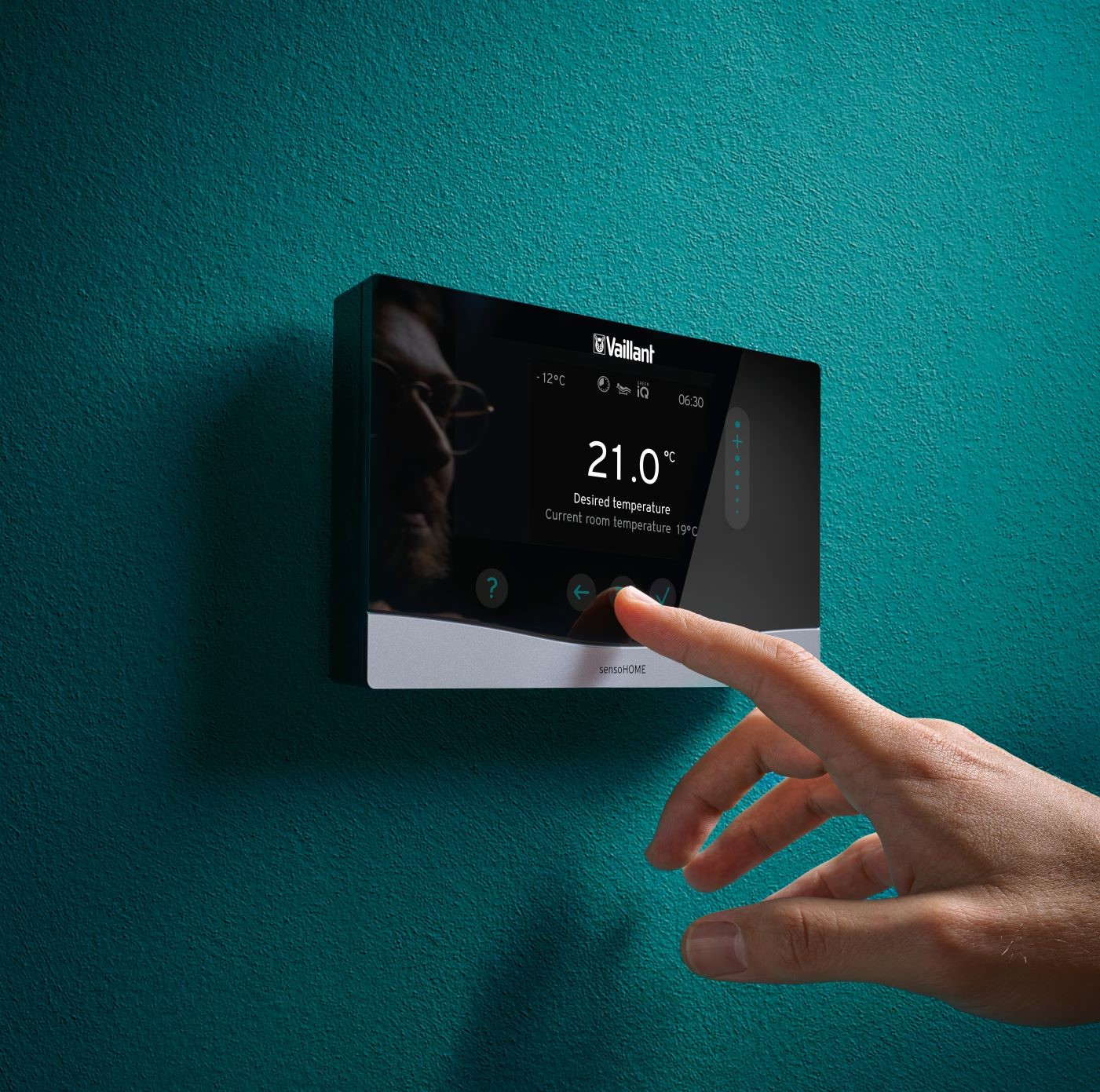To support developers in making the transition to build homes that meet the Government’s Future Homes Standard, which is set to come into effect in 2025, Vaillant has launched its most advanced range of controls for use with gas boilers and low-carbon heating systems such as heat pumps.
The new sensoCOMFORT and sensoHOME controls offer increased connectivity with enhanced load compensation and weather compensation as standard* this improves system efficiency which will help achieve a better SAP rating. Whilst sensoHOME offers a simple-to-use control for gas boilers, sensoCOMFORT works with multiple heating zones and hot water powered by gas-fuelled, hybrid or renewable systems. The wired version of sensoCOMFORT can control up to five heating zones and the wireless unit governs up to three.
Homeowners can download and use Vaillant’s sensoAPP with both models to set and change their heating schedules at home and on the go if sensoNET (VR921) internet gateway is also installed. When sensoCOMFORT is specified with Vaillant’s ambiSENSE smart radiator valves, homebuyers can also control the climate in individual rooms via Vaillant’s sensoAPP. Furthermore, homeowners can monitor how much energy their heating system consumes via the energy dashboard** feature on the senso controls to identify opportunities for energy savings.
Thanks to eBUS connection, the senso range of controls can scan the entire system for components and seamlessly synchronise with any Vaillant heat pump or boiler, making them quick and easy to commission. Use of Vaillant’s proprietary in-built eBUS intelligent communication protocol also enables the controls to constantly work with the system for increased energy efficiency.
Steve Keeton, technologies and training director at Vaillant, said “As the Government is looking to phase out the use of fossil fuels in new build domestic heating as part of their Future Homes Standard, we want to help developers build housing with low-carbon solutions. After the recent launch of our new aroTHERM plus heat pump, the next step is to provide intelligent thermostats that are compatible with both gas-fuelled and renewable heat sources. This gives housebuilders the flexibility to use a mix of technologies to meet commercial and regulatory needs. At the same time, homebuyers can operate their low-carbon heating systems to suit their lifestyles without compromising on energy and carbon savings.”
*sensoHOME requires outdoor weather sensor
** Energy dahsboard for the sensoHOME is only available on the sensoAPP
Vaillant unveils controls to help developers deliver homes of the future
Vaillant Group
View company profile| T | 0345 602 0262 |
|---|---|
| 0344 693 3133 Tech Dept. | |
| E | UKsales@vaillant-group.com |
| W | Visit Vaillant Group's website |
| Nottingham Road, Belper, Derbyshire, DE56 1JT |
Categories
Boilers Heat pumps

